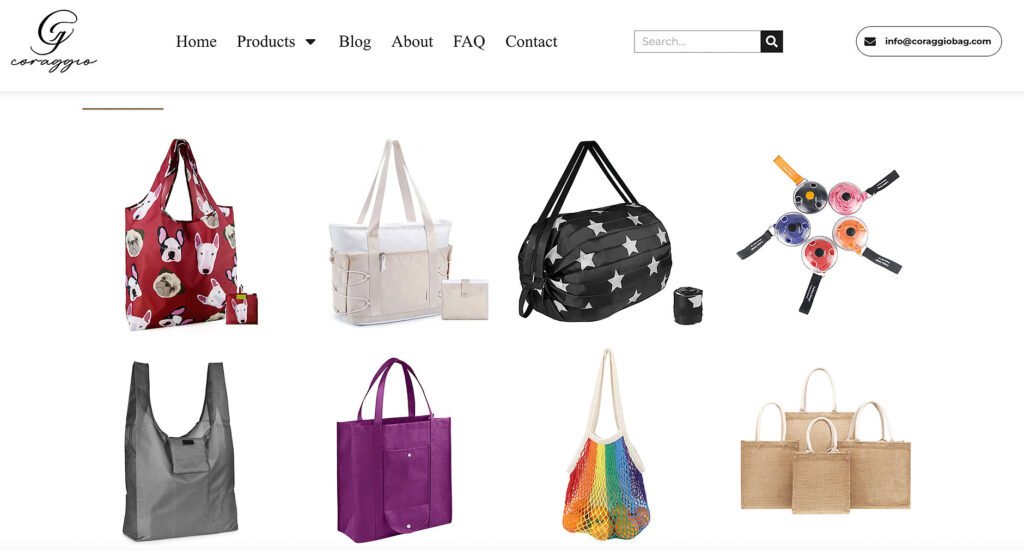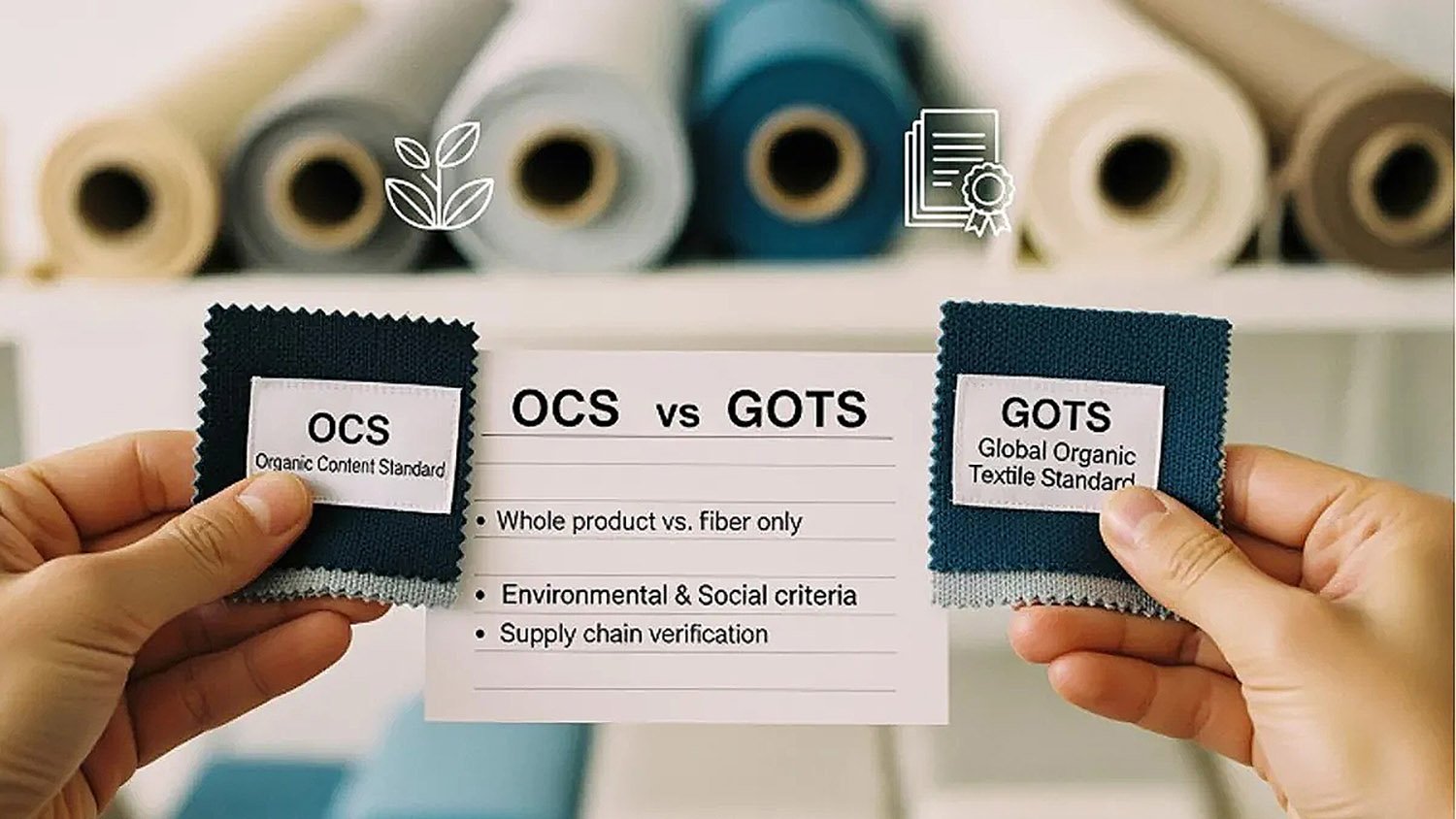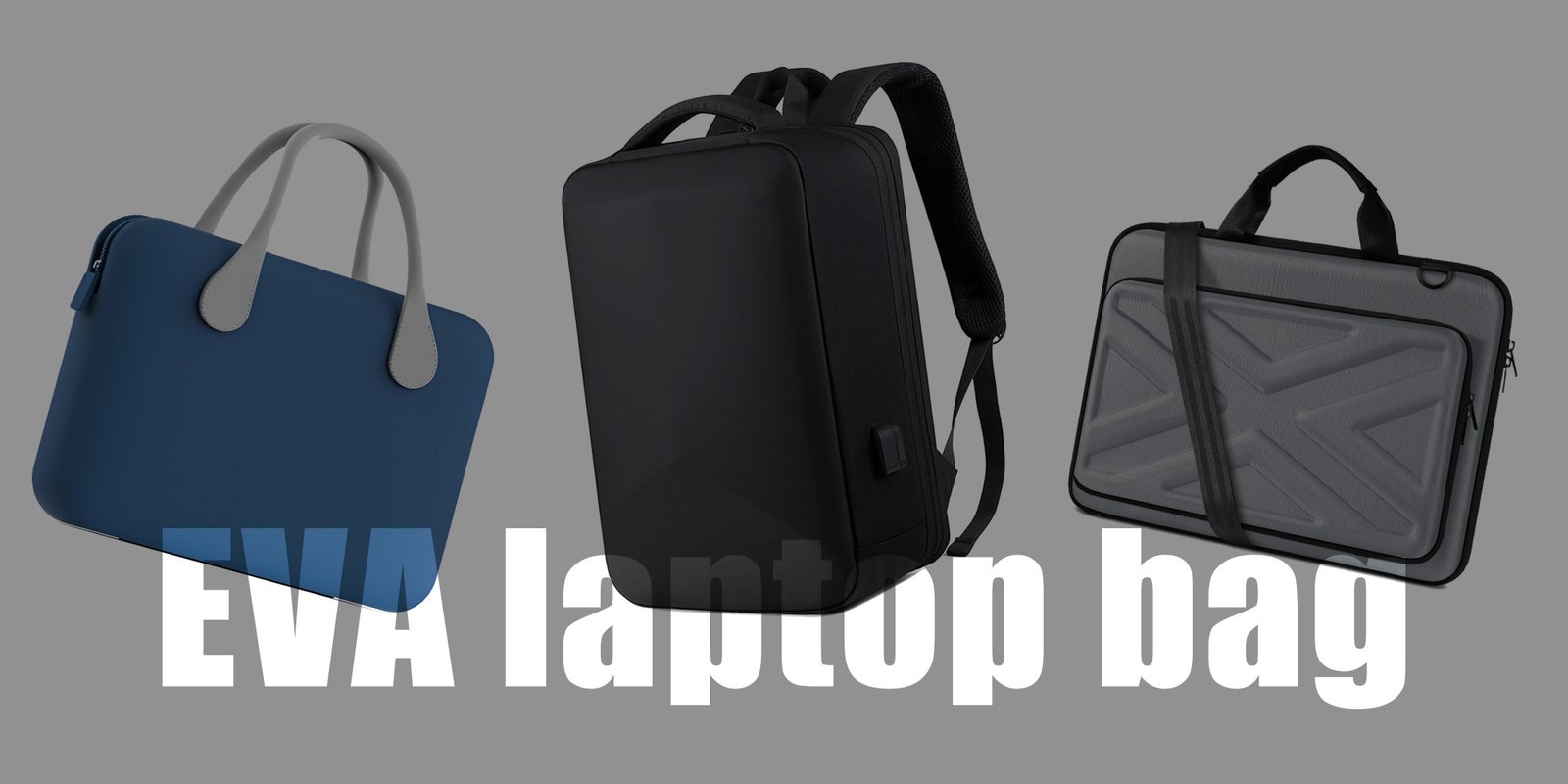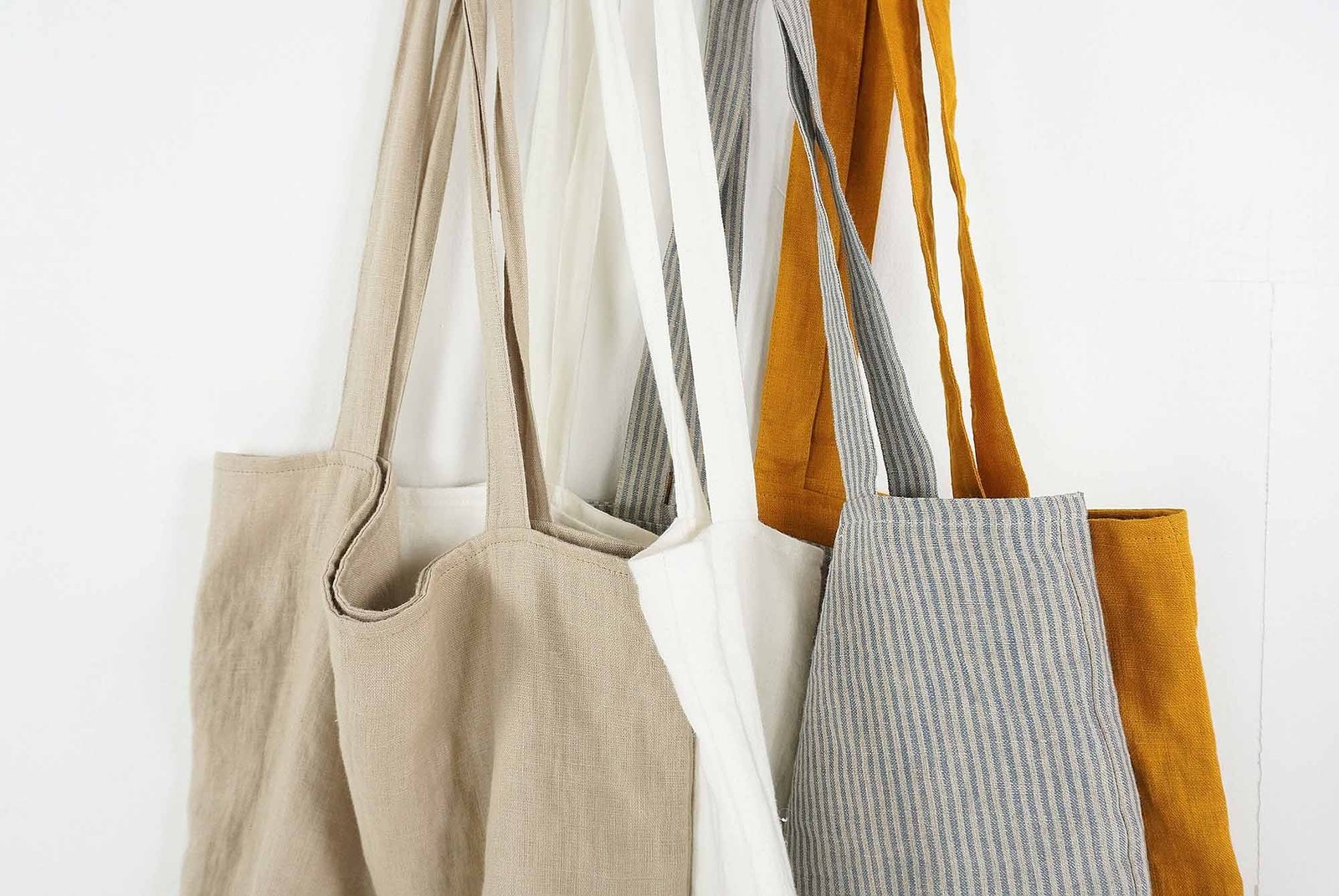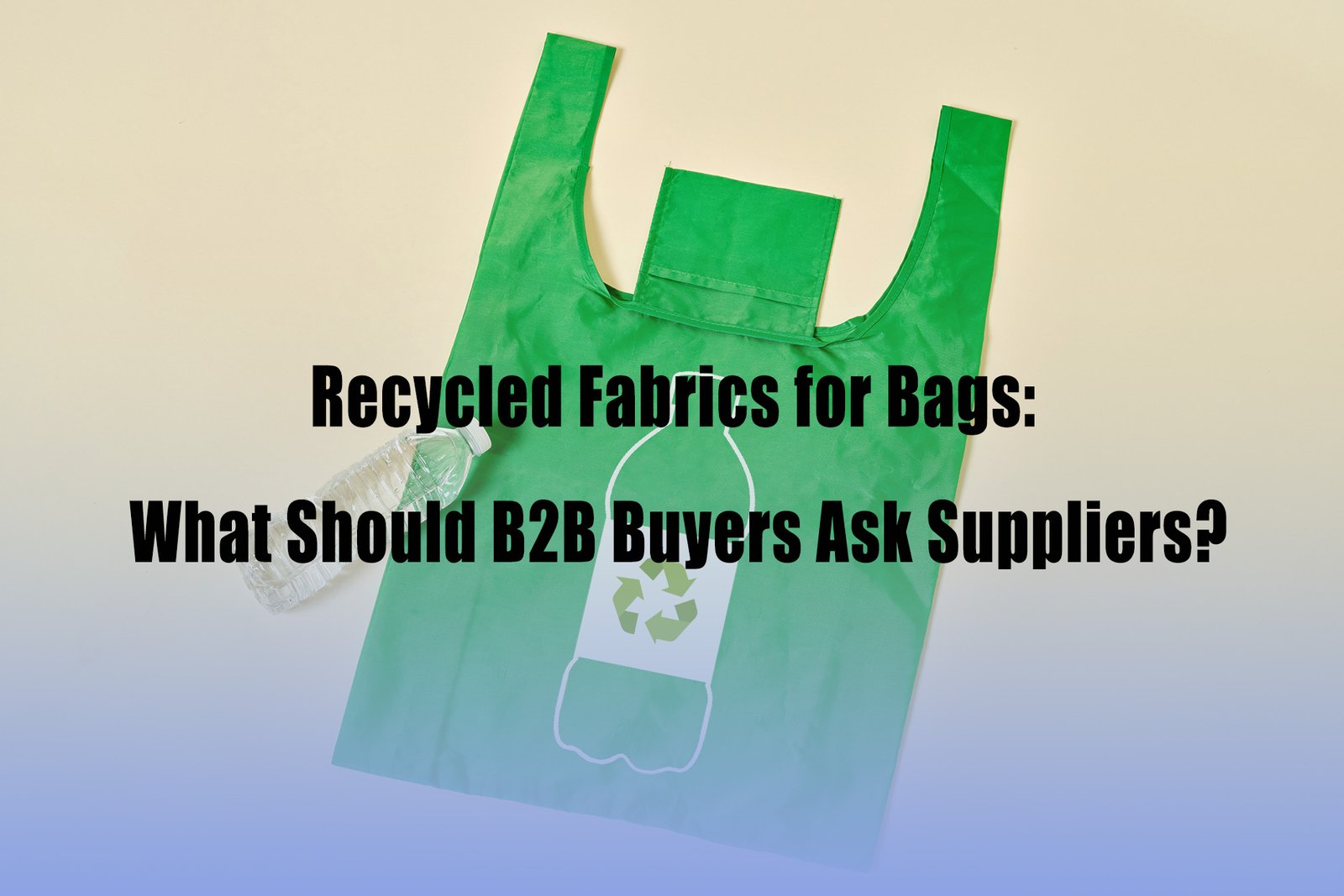Hey there, friend! Let’s talk about something super practical and close to my heart – shopping bags. It might not sound like the most exciting topic initially, but trust me, it’s more interesting (and necessary) than you think. We’ve all been there, standing at the checkout line, wondering if we should go for plastic, paper, or maybe even one of those fancy reusable bags. The options are endless, and it can be downright confusing. So, let’s dive into the nitty-gritty and determine which material is the best for shopping bags.

Using reusable bags is a simple yet impactful way to reduce environmental waste. Think about it – every time you opt for a reusable bag over a single-use one, you make a significant contribution to a cleaner planet. But with so many reusable bags, how do you know which one to pick? Should you go for the classic cotton tote, the sturdy jute sack, or something made from recycled materials? This article is here to help you navigate through the sea of options and find the perfect bag that suits your needs and aligns with your values.
We’ll discuss the pros and cons of plastic, paper, cotton, non-woven polypropylene, jute, and polyester. Each material has unique strengths and weaknesses, and what works best for you might depend on your specific requirements – durability, environmental impact, or cost. By the end of this read, you’ll understand what makes each type of bag tick and which one is the right fit for your shopping adventures. So, grab a cup of coffee, settle in, and chat about the best materials for reusable shopping bags.
Snippet Answer Paragraph
The best material for shopping bags depends on your needs. Non-woven polypropylene bags are durable, affordable, and eco-friendly, making them an excellent choice for most shoppers. Cotton bags are solid and biodegradable, ideal for those who prefer natural materials, though they require more resources to produce. Jute bags are sustainable and robust but can be less water-resistant. Consider factors like durability, environmental impact, and cost to find the perfect bag for your shopping needs.
Now that we’ve covered the basics let’s explore each type of shopping bag material in more detail. Understanding the advantages and disadvantages of each will help you make an informed decision about which bag best suits your lifestyle and values.
Plastic Bags:
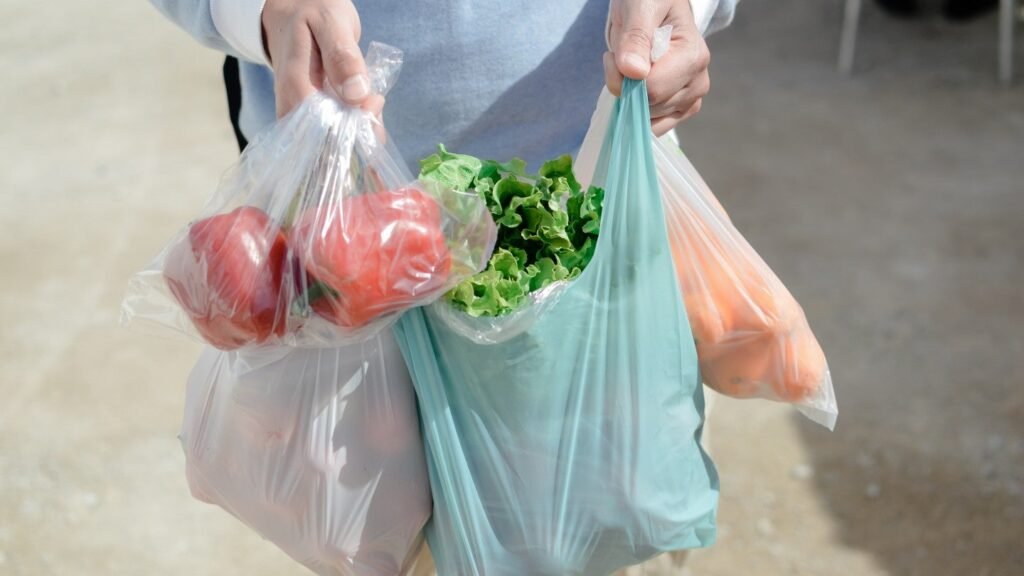
Plastic bags are everywhere, and it’s easy to see why. They’re cheap, lightweight, and can carry a surprising amount of weight for their size. These bags are also water-resistant and handy if you get caught in the rain or carry something wet. Plus, they’re incredibly convenient—you can stuff a bunch of them in a drawer or your car without taking up much space, and they’re always ready when you need them.
Advantages of Plastic Bags:
- Cost-Effective: Plastic bags are incredibly cheap to produce, so they’re widely used in stores worldwide.
- Durable: Despite being lightweight, plastic bags can carry heavy loads without tearing easily.
- Water-Resistant: Plastic is impervious to water, making these bags ideal for carrying groceries in wet weather.
- Convenient and Compact: They’re easy to store and carry around because they take up very little space when not in use.
However, plastic bags come with significant downsides. They are non-biodegradable, meaning they can take hundreds of years to break down in the environment. This contributes to severe pollution problems, particularly in our oceans, where plastic waste harms marine life. Plastic bags often end up in landfills or as litter, causing environmental damage. Wildlife can mistake plastic for food, leading to ingestion that can be fatal. Additionally, the production and disposal of plastic bags release toxic chemicals that can contaminate soil and water.
Disadvantages of Plastic Bags:
- Environmental Pollution: Plastic bags are a significant source of litter, polluting land and waterways. They can take centuries to decompose, causing long-term ecological damage.
- Harm to Wildlife: Animals often mistake plastic bags for food, which can lead to ingestion and death. Marine animals, in particular, are at high risk.
- Toxic Chemicals: The production and disposal of plastic bags release harmful chemicals into the environment, contaminating soil and water sources.
- Resource-Intensive Production: Manufacturing plastic bags requires fossil fuels, contributing to the depletion of non-renewable resources and greenhouse gas emissions.
Despite their convenience, plastic bags’ environmental impact is a major concern. For a deeper understanding of their effects, check out this article from Stanford: Paper, Plastic or Reusable? If you’re looking to make a more eco-friendly choice, it might be worth considering alternatives like cotton, jute, or non-woven polypropylene bags, which we’ll explore next.
Paper Bags:
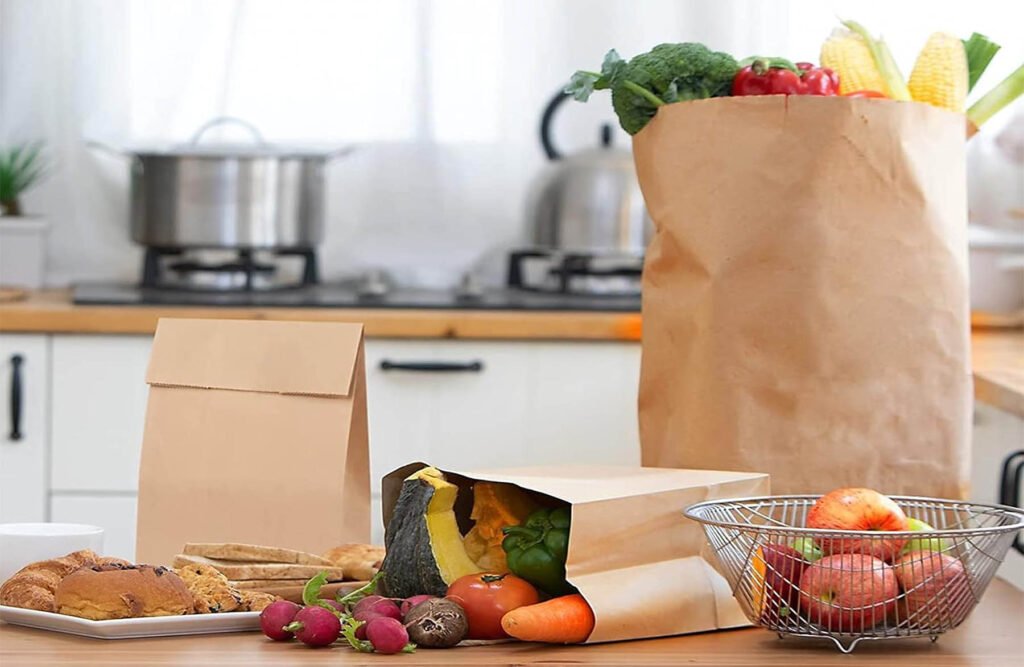
Paper bags have been a staple in grocery stores and shops for decades. They’re often seen as a more environmentally friendly alternative to plastic bags, and for good reason. Paper bags are made from renewable resources, are biodegradable, and can be recycled. Let’s look at the advantages and disadvantages of using paper bags.
Advantages of Paper Bags:
- Biodegradable: One of the most significant benefits of paper bags is that they are biodegradable. Unlike plastic, which can take centuries to decompose, paper bags break down relatively quickly, reducing their impact on landfills and the environment.
- Recyclable: Paper bags can be easily recycled, which helps conserve resources and reduce waste. Many municipalities have recycling programs for paper products, making it simple for consumers to recycle their used bags.
- Renewable Resource: Paper bags are made from trees, which are a renewable resource. Responsible forestry practices ensure that trees are replanted to maintain a sustainable supply.
- Reduced Litter Impact: If paper bags end up as litter, they are less harmful to wildlife and the environment than plastic bags, as they decompose much faster.
However, paper bags have their drawbacks. While they have several environmental benefits over plastic bags, they also have some disadvantages that must be considered.
Disadvantages of Paper Bags:
- Durability: Paper bags are generally less durable than plastic bags. They are more likely to tear or become damaged when carrying heavy or wet items, making them less practical for some uses.
- Water Resistance: Paper bags are not water-resistant. If they get wet, they can easily break down, which can be inconvenient and lead to spills or lost items.
- Higher Production Costs: Paper bags require more energy and resources than plastic bags. The process involves cutting down trees, which can contribute to deforestation if not managed sustainably. Additionally, the manufacturing process for paper bags generates more pollution and greenhouse gases than plastic bags.
- Space and Storage: When stored, paper bags take up more space than plastic bags, which can be an issue for retailers and consumers who need to keep an ample supply.
While paper bags offer several environmental advantages over plastic bags, they also come with challenges. Read this comparison for a deeper look into the debate between paper and plastic bags: Paper vs Plastic Bags: Which Option is Truly the Best? When choosing between the two, it’s essential to consider the specific needs of your shopping trips and how you can best minimize your environmental footprint.
Next, we’ll explore cotton bags, another popular alternative to plastic and paper bags, to see how they compare in terms of sustainability and practicality.
Cotton Bags:

Cotton bags have become the poster child for eco-friendly shopping. They’re sturdy, reusable, and often come with trendy designs, making them a popular choice among environmentally conscious consumers. But are they really the best option for the environment? Let’s break down the advantages and disadvantages of using cotton bags.
Advantages of Cotton Bags:
- Durability: Cotton bags are solid and can hold a significant amount of weight, making them ideal for carrying groceries, books, and other heavy items. Their durability means they can be used repeatedly over a long period, reducing the need for single-use bags.
- Washable: One of the biggest perks of cotton bags is that they’re washable. You can easily throw them in the washing machine to keep them clean and hygienic, which is especially important if you use them to carry food.
- Biodegradable: Cotton is a natural fiber, so cotton bags are biodegradable. This means they will eventually break down if they end up in a landfill, unlike plastic bags, which can take centuries to decompose.
- Renewable Resource: Cotton is a renewable resource, as it’s grown from plants. When managed sustainably, cotton farming can be a relatively eco-friendly process.
Disadvantages of Cotton Bags:
- High Environmental Impact of Production: The production of cotton bags is resource-intensive. Growing cotton requires a lot of water, and conventional cotton farming often involves using pesticides and fertilizers, which can harm the environment. According to some studies, a single cotton bag must be used hundreds of times to offset its environmental impact compared to single-use plastic bags.
- Energy-Intensive Manufacturing: Turning raw cotton into fabric and then into bags requires considerable energy. This contributes to the carbon footprint of cotton bags.
- Land Use: Cotton farming takes up large amounts of arable land, which could otherwise be used to grow food crops or support natural ecosystems.
- Higher Cost: Cotton bags are generally more expensive to produce and purchase than plastic or paper bags. This higher cost can be a barrier for both retailers and consumers.
Despite these disadvantages, cotton bags remain popular due to their durability and biodegradability. They are an excellent option if you want to reduce your use of single-use plastics and prefer a bag that can handle heavy loads and frequent washes.
For more insights into the pros and cons of cotton bags, check out this guide: What Are The Most Popular Materials Used For Reusable Bags? Top 6 Eco-Friendly Options Explained
Next, let’s look at non-woven polypropylene bags, which offer a different balance of durability and environmental impact.
Non-woven Polypropylene Bags

Non-woven polypropylene bags are becoming increasingly popular as a reusable alternative to plastic and paper bags. These bags balance durability and environmental friendliness, making them a favorite among many eco-conscious shoppers. Let’s delve into the advantages and disadvantages of using non-woven polypropylene bags.
Advantages of Non-woven Polypropylene Bags:
- Durability: Non-woven polypropylene bags are incredibly durable. They can carry heavy loads without tearing or breaking, making them ideal for grocery shopping and everyday use. Their sturdiness means they can be used repeatedly over a long period, reducing the need for disposable bags.
- Affordable: These bags are relatively inexpensive to produce and purchase, making them a cost-effective option for consumers and retailers. Their affordability helps encourage more people to switch from single-use bags to reusable options.
- Water and Chemical Resistant: Non-woven polypropylene bags are resistant to water and chemicals, which means they can be easily cleaned and are less likely to degrade when exposed to different substances. This makes them practical for various uses, including carrying food items.
- Recyclable: Although not biodegradable, non-woven polypropylene bags can be recycled. If disposed of properly, they help reduce their environmental impact. Recycling programs for these bags are becoming more common, making it easier for consumers to recycle them.
However, while non-woven polypropylene bags have many benefits, they also have some disadvantages that must be considered.
Disadvantages of Non-woven Polypropylene Bags:
- Non-biodegradable: One of the main downsides of non-woven polypropylene bags is that they are not biodegradable. If not recycled properly, they can contribute to environmental pollution and take a long time to break down in landfills.
- Production Impact: Polypropylene bags involve using fossil fuels and chemicals, which can have a negative environmental impact. Manufacturing releases greenhouse gases and other pollutants, contributing to climate change.
- Recycling Challenges: While these bags are recyclable, not all recycling facilities accept them. This can make it challenging for consumers to find appropriate recycling options, leading to improper disposal and environmental harm.
- Less Eco-friendly Compared to Natural Fibers: Compared to natural fiber bags like cotton or jute, non-woven polypropylene bags have a higher environmental footprint due to their synthetic nature and the resources required for production.
Despite these disadvantages, non-woven polypropylene bags are an excellent choice for those seeking a durable, affordable, and relatively eco-friendly reusable bag. They offer a practical solution for reducing single-use plastic waste. They are a versatile option for various shopping needs.
For a detailed comparison of bag materials, check out this guide: The Pros and Cons of Different Reusable Bag Materials: Which is Right for You?
Next, we’ll explore jute bags, a natural and sustainable alternative for environmentally conscious shoppers.
Jute Bags
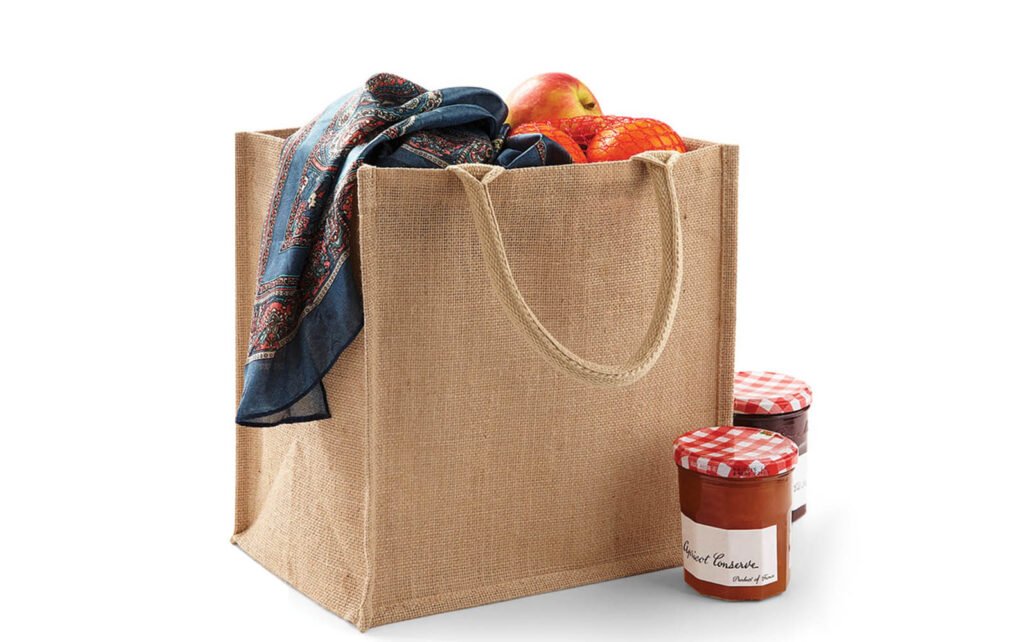
Jute bags are a fantastic option for those looking to go green with their shopping habits. Made from natural fibers, jute bags are environmentally friendly, sturdy, and stylish. Let’s explore the advantages and disadvantages of using jute bags.
Advantages of Jute Bags:
- Biodegradable: Jute is a natural fiber, making jute bags biodegradable. Unlike plastic or synthetic materials, jute bags will break down naturally over time, reducing their environmental impact.
- Sustainable Production: Jute is a renewable resource that proliferates and requires minimal fertilizers and pesticides. This makes jute farming more sustainable and less environmentally harmful than other crops like cotton.
- Durability: Jute bags are strong and can carry heavy loads, making them perfect for grocery shopping and other everyday uses. Their robust nature means they can be reused many times, which helps reduce the need for disposable bags.
- Eco-friendly: The production of jute bags has a lower carbon footprint than plastic and synthetic bags. Jute plants absorb a significant amount of CO2, which helps offset greenhouse gas emissions.
- Stylish and Versatile: Jute bags often come in various designs and sizes, making them a fashionable choice for eco-conscious consumers. They can be used for shopping, beach bags, or even stylish totes for everyday use.
However, despite their many benefits, jute bags also have some disadvantages that should be considered.
Disadvantages of Jute Bags:
- Cost: Jute bags can be more expensive than plastic or non-woven polypropylene bags. The higher price can be a barrier for some consumers, although their durability often justifies the initial investment.
- Water Absorption: Jute is a natural fiber that absorbs water quickly. This means that jute bags are not water-resistant and can become heavy and potentially moldy if they get wet frequently.
- Maintenance: Synthetic bags are more challenging than keeping jute bags clean. They are not as easy to wash and require careful handling to prevent damage.
- Limited Availability: While the popularity of jute bags is growing, they may not be as widely available as plastic or other reusable bags, depending on your location.
Despite these drawbacks, jute bags remain a top choice for those prioritizing environmental sustainability and durability. They offer a natural and stylish alternative to conventional shopping bags, making them a great addition to your eco-friendly lifestyle.
Read this guide for more information on the benefits and uses of jute bags: Reusable Eco-Friendly Shopping Bag Types: The Ultimate Guide
Next, look at polyester bags, another popular option that balances durability and practicality.
Polyester Bags
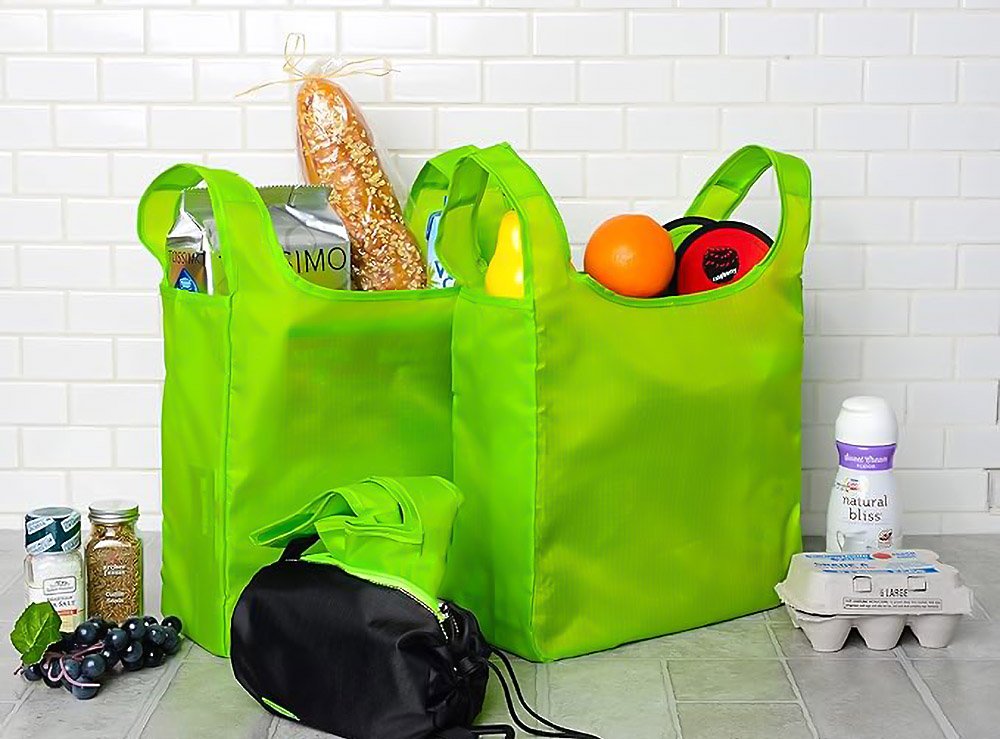
Polyester bags are another popular choice in the world of reusable shopping bags. Known for their durability and versatility, polyester bags offer a practical solution for many shoppers. However, like any material, they come with their own set of pros and cons. Let’s take a closer look at the advantages and disadvantages of using polyester bags.
Advantages of Polyester Bags
- Durability: Polyester bags are solid and can handle heavy loads without tearing. This makes them perfect for carrying groceries, books, and other heavy items. Their durability ensures they can be reused many times, reducing the need for single-use bags.
- Lightweight: Polyester bags are lightweight and easy to carry around despite their strength. This makes them convenient for everyday use and ideal for those who need a bag that won’t add extra weight to their load.
- Water-resistant: Polyester is naturally water-resistant, so these bags protect your items from rain and spills. This feature is handy for carrying groceries or other items that must stay dry.
- Easy to Clean: Polyester bags are easy to clean and maintain. They can be wiped down with a damp cloth or washed in the machine, making them a practical choice for frequent users.
- Variety of Designs: Polyester bags come in various colors, patterns, and designs. This makes them a stylish option for shoppers who want a bag that looks good while being functional.
However, polyester bags have disadvantages. These factors must be considered when deciding if polyester is the right material for your reusable bags.
Disadvantages of Polyester Bags:
- Non-biodegradable: One significant drawback of polyester bags is that they are not biodegradable. This means they can persist in the environment for many years if not correctly disposed of, contributing to pollution and waste.
- Microplastic Pollution: When washed, polyester bags can shed microplastics, tiny plastic particles that can pollute waterways and harm marine life. This is a significant environmental concern associated with synthetic fabrics.
- Production Impact: Polyester production involves using fossil fuels and chemicals, which can have a negative environmental impact. Manufacturing releases greenhouse gases and other pollutants, contributing to climate change.
- Recycling Challenges: While polyester can be recycled, the process is complex and only sometimes widely available. This can make it challenging to recycle used polyester bags appropriately, leading to more waste.
Despite these disadvantages, polyester bags remain popular due to their durability, water resistance, and ease of maintenance. They offer a practical solution for everyday use. They can be a stylish addition to your collection of reusable bags.
Next, we’ll wrap up with a summary and recommendation, including a shout-out to Coraggio Bag’s reusable options for those looking to make a sustainable choice.
Summary
Choosing the best material for your reusable shopping bags depends on various factors, including durability, environmental impact, and cost. Here’s a quick recap of what we’ve covered:
- Plastic Bags: Cheap and water-resistant but non-biodegradable and harmful to the environment.
- Paper Bags: Biodegradable and recyclable but less durable and not water-resistant.
- Cotton Bags: Strong, washable, and biodegradable but resource-intensive to produce.
- Non-woven Polypropylene Bags: Durable and affordable but not biodegradable, requiring proper recycling.
- Jute Bags: Biodegradable and sustainable but can be costly and are not water-resistant.
- Polyester Bags: Durable and water-resistant but non-biodegradable and can release microplastics.
After considering all the materials, my favorite is the non-woven polypropylene bag. It’s durable, affordable, and relatively eco-friendly when appropriately recycled. However, if you’re looking for something more eco-conscious, a cotton or jute bag might be the way to go.
For those looking to make a sustainable choice without compromising style and functionality, check out Coraggio Bag’s reusable bags. They offer a fantastic range of stylish and sustainable options, perfect for eco-conscious shoppers.
So, next time you’re in the market for a reusable shopping bag, consider what material best suits your needs and values. Happy shopping!

